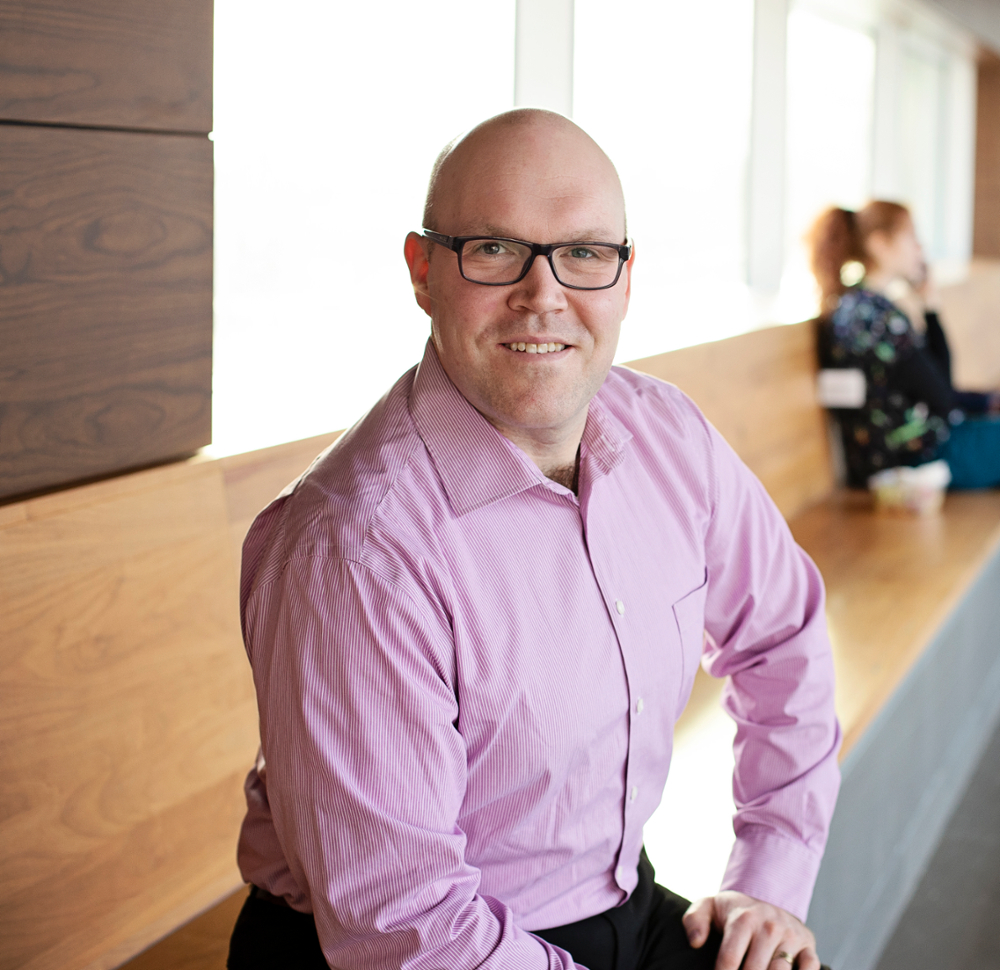School of Public Health expert in antimicrobial resistance and use (AMR/AMU) invited to speak at G20 summit pre-event
10 August 2022

As organizers prepare for the G20 summit to take place in Bali later this year, School of Public Health assistant professor Simon Otto spoke at an international-level virtual pre-event in June.
Otto, one of nine international speakers invited from over 200 participating from G20 countries, is a research expert in the area of One Health surveillance programs. He delivered the talk, “One Health Antimicrobial Resistance and Antimicrobial Use Surveillance - Lessons Learned,” which focused on surveillance as the backbone for AMR prevention and control.
“My role was to provide expertise on the process, challenges, and recommendations for One Health AMR/AMU surveillance based on our review of Canadian programs that I led for the National Collaborating Centre for Infectious Diseases,” says Otto.
Speaking to an international audience, Otto shared his research on how to improve integrated One Health AMR/AMU surveillance, ways to strengthen and extend national and regional surveillance systems, and lessons learned from Canada in the development of these programs.
We had the opportunity to sit down with him to learn about the importance of conducting surveillance across human, animal and environmental sectors to address AMR and to talk about his experience at the G20 event.
What is One Health AMR/AMU Surveillance?
Integrated, One Health antimicrobial resistance and antimicrobial use surveillance is the collection, analysis, integration, and dissemination of antimicrobial resistance (e.g., in bacteria) and antimicrobial use (e.g., antibiotic drug use) data from all of the One Health sectors (humans, animals, and the environment) in such a way that informs antimicrobial stewardship policy and programmatic response that spans all three sectors.
How did it feel to be invited as a speaker at a G20 event?
I was very honoured and humbled to be invited as one of nine international subject matter experts. This was my first opportunity to speak at a G20 event with such a broad international audience. I was excited to learn that our work on this topic, including our recent publications, has been impactful at the international level.
What was the main message you shared with your audience?
Integrated, One Health surveillance is a pivotal component of antimicrobial stewardship to address AMR. We require adequate, integrated data in order to understand the antimicrobial use drivers of resistance, and which we can benchmark and evaluate program and policy interventions against, to see where we are making improvements and where we are lacking progress. To date, the environmental component of AMR surveillance is largely lacking, and our systems still have many gaps across the One Health sectors that must be addressed. However, we cannot let the perfect be the enemy of the good. The global leaders in this field, including Canada, started and continue to build their programs incrementally. We need to accelerate this progress with an investment in money, people, and infrastructure.
Why is this an emerging and relevant topic at the G20 summit?
One Health AMR/AMU surveillance is a key pillar of national and WHO’s strategic and action plans to address AMR. However, most countries have not yet been able to provide adequate resources in money, people, and infrastructure to make them comprehensive, fully operational, and timely. This issue must be highlighted at the G20 meetings as governments grapple with complex and competing resource demands coming out of the COVID-19 pandemic.
Tell us about your experience.
I was excited and nervous to present to this broad, international audience from the quiet of my own home (the meeting was virtual). I received a number of great questions, and more importantly, meaningful followup from experts at the meeting, such as from the World Health Organization.
What impact does having a presentation from SPH at an international event of this magnitude have for the school?
The School of Public Health is unique in that we teach about One Health in various aspects of our program, including a specific, focused course (SPH 416/516). When we think about public health, it is easy to focus on human health, without realizing that our health is inextricably linked to the health of animals and our broader environment. My invitation to speak as an SPH faculty member heightened the international profile of the school as well as emphasize the importance of taking a One Health approach to human health and issues such as AMR.
What did you learn from the event?
I think it was more about the people I met. Most of the other speakers were names I have heard of, or whose publications I’ve read. It was amazing to be speaking alongside these international experts! The importance and challenges of building out the environmental component of these surveillance programs was also re-emphasized for me. One of the reasons this has been slow is because this component is extremely difficult and less well defined than the human and animal components. There is a large need for more research in this area.
Dr. Otto’s complete report and publication can be viewed here:
NCCID complete report: NCCID report
Publication: https://doi.org/10.17269/s41997-021-00600-w; https://doi.org/10.3389/fpubh.2021.693703